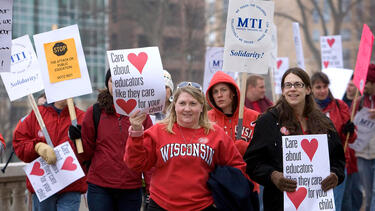Politics and Policy
What Happened When Five AI Models Fact-Checked Trump
President Donald Trump is an AI booster, write Yale SOM’s Jeffrey Sonnenfeld and co-authors Stephen Henriques and Steven Tian. So they thought it was fair to ask the leading chatbots to evaluate some of Trump’s frequently repeated claims.
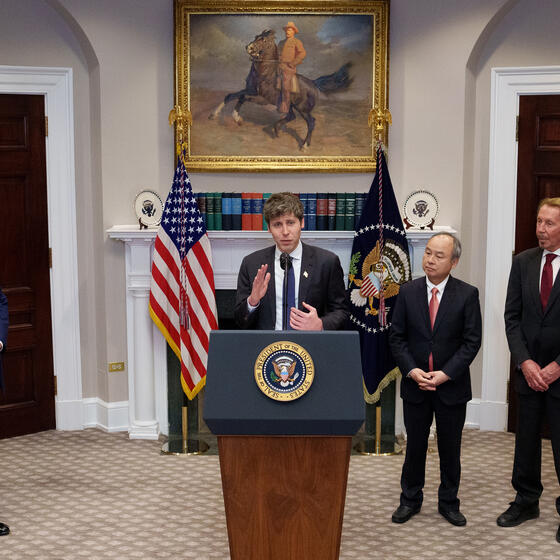
Bringing Private-Sector Values to the Public Sector—and Vice Versa
Professor Teresa Chahine talks with Roderick Bremby, who led a dramatic turnaround of Connecticut's Supplemental Nutrition Assistance Program. Today, he is an executive at Salesforce, which has provided contact tracing and vaccine management during the COVID-19 pandemic.
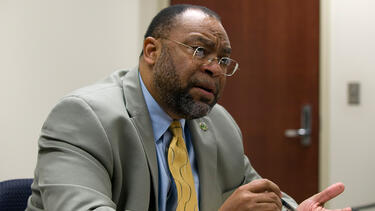
Video: Police-Citizen Trust Is a Path out of the Crisis
The murder of George Floyd and other high-profile incidents of police violence are part of a larger crisis of trust between U.S. police forces and the communities they protect. Yale SOM’s Rodrigo Canales says that the solution is for police organizations to think of their mission not simply as reducing crime but as building trust with citizens.

How Connecticut Accelerated Its Vaccinations
Josh Geballe ’02, Connecticut’s chief operating officer, explains the state’s controversial decision to switch to age-based eligibility for COVID vaccines—and says it likely saved lives.

Why the Texas Power Market Failed
Texas-based energy economist Ed Hirs ’81 says the February 2021 power crisis exposed longstanding, fatal flaws in the state’s energy market design and oversight.

To Reduce Risk, Build Trust, in Developing Countries and the U.S.
Mena Cammett ’12 of the World Bank says that the tools used to analyze risk in emerging markets are increasingly relevant to the United States. To mitigate vulnerabilities, build trust.

Can Business Leaders Be a Force for Democracy?
In the wake of the presidential election, Yale SOM leadership expert Jeffrey Sonnenfeld hosted three urgent discussions with top CEOs, where they discussed their concern about attempts to overturn the results and made a much-reported pledge to freeze donations to legislators who voted to reject election results.

Business Leaders Are Deeply Concerned about Public Safety—and Democracy
At a virtual meeting convened by Yale SOM leadership expert Jeffrey Sonnenfeld in the wake of the attack on the Capitol, CEOs voiced worries and brainstormed ideas for how business can help strengthen democracy.
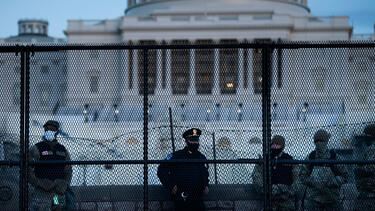
Day-One Advice for President Joe Biden, from Yale Experts
Joe Biden and Kamala Harris will take on an array of monumental challenges, including controlling COVID-19, making progress on the climate crisis, and confronting racial injustice. We asked faculty members who specialize in these and other subjects what research-based counsel they would give to America’s new leaders.
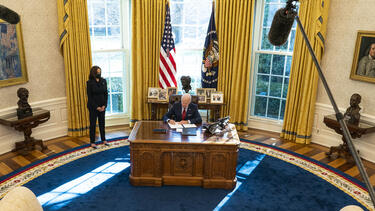
‘Snapshots’ of Migrants in Mexico Suggest U.S. Undocumented Population Is Much Larger than Previous Estimates
A new study from Yale SOM’s Edward Kaplan and Scott Rodilitz, making use of data on migrants who have returned to Mexico, suggests that there are an estimated 19.6 million undocumented immigrants in the United States.

Weakening Unions Can Lead to Gender Gap in Wages
In 2011, legislation in Wisconsin reduced the power of unions to negotiate teachers’ salaries. Within five years, male teachers started earning more than women did.
